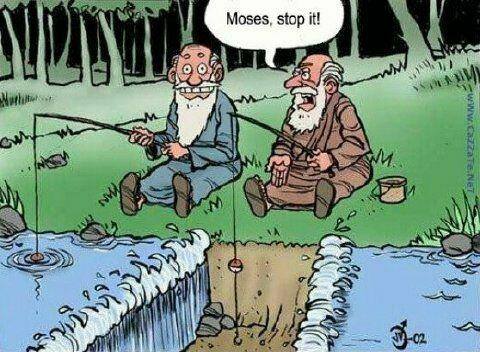bcbsr said in post #1703:
On the other hand it also says, "However, to the man who does not work but trusts God who justifies the wicked, his faith is credited as righteousness." Rom 4:5
Amen.
But God does not justify unrepentant wickedness (Hebrews 10:26-29). Also, while initial justification/salvation is apart from works (Ephesians 2:8-9), ultimate justification/salvation does require works (Romans 2:6-8, Matthew 7:21).
*******
bcbsr said in post #1704:
Not possible, never happens. If an alleged Christian apostasises it just means they were never saved to begin with. So says JOhn in 1JOhn 2:19
Note that 1 John 2:19 does not require that apostate Christians were never real Christians, but can mean that apostate Christians were never of the overcomers to the end (Revelation 3:5, Revelation 2:26). Real Christians, who have their names written in the Book of Life, can have their names blotted out if they fail to overcome to the end (Revelation 3:5, Revelation 2:26). People can really believe in Jesus Christ and His Gospel only for awhile, before at some point wrongly employing their free will to depart from the faith, to no longer believe, to commit apostasy (Luke 8:13; 1 Timothy 4:1; 2 Thessalonians 2:3), to the ultimate loss of their salvation (Hebrews 6:4-8, John 15:6; 2 Timothy 2:12b).
1 John 2:18-19 can refer to Christians who eventually became Gnostic Christians (cf. 2 John 1:7; 1 John 4:3), and so left the Church because of its continued, and correct, insistence that Christ is in the flesh (Luke 24:39).
bcbsr said in post #1704:
Salvation not conditioned upon behavior . . .
Note that ultimate salvation is conditional upon obedience to Jesus (Hebrews 5:9).
bcbsr said in post #1704:
Behavior reveals ones salvation status . . .
Not necessarily (2 Peter 2:20-22).
*******
bcbsr said in post #1705:
People are justified by faith . . .
That's right, initially, if you mean by faith alone (Romans 4:3). But ultimately people are justified by faith and works (James 2:24).
bcbsr said in post #1705:
. . . not by their involvement in a religious ceremony, for example.
John 6:53-57 shows that all Christians, for their ultimate salvation, must eat the bread of Communion (Matthew 26:26), and drink the wine of Communion (Matthew 26:27-29), which actually become the body and blood of Jesus Christ (1 Corinthians 11:27-30), in some spiritual manner (John 6:63).
In 1 Corinthians 11:29, "discerning the Lord's body" means that when Christians partake of Communion (1 Corinthians 11:23-29), they must discern that the bread and wine are the actual body and blood of Jesus Christ (John 6:53-56) in some spiritual manner (John 6:63), or they may suffer the consequences (1 Corinthians 11:30).
*******
bcbsr said in post #1706:
A person cannot speak about being "saved" from a future event - saved from hell fire - if in fact there is no guarantee they will not lose their salvation.
They can.
For what Christians are saved from, whether initially or ultimately, is eternal suffering in hell (Matthew 25:41,46). Initial salvation does save Christians from hell, initially. For an initially-saved Christian will end up in hell ultimately only if he wrongly employs his free will subsequent to his initial salvation in such a way that he ultimately loses his salvation (Hebrews 10:26-29, Hebrews 6:4-8, Matthew 25:26,30).
bcbsr said in post #1706:
So the salvation by works Christians cannot logically say that they are saved . . .
They can.
For initial salvation, being born again (John 3:3,7; 1 Peter 1:23-25; 1 Peter 2:2), is both present salvation and a contract for ultimate salvation, just as the birth of an infant is both present life and a contract for life as an adult. Just as children can know that they are actually alive, so initially saved people (that is, Christians) can know that they are actually saved (1 John 5:13; 1 Corinthians 15:1-4). And just as an infant cannot "give back" his being born, or become unborn, so a born-again person cannot become un-born-again, or "give back" his being born again, his being initially saved. But just as there is no assurance that children will reach adulthood, so there is no assurance that initially saved people will obtain ultimate salvation. For just as there are conditions placed on children, like not running into traffic, and not drinking the Drano under the sink, if they are to reach adulthood, so there are conditions placed on the born-again, the initially saved, if they are to obtain ultimate salvation (Romans 2:6-8, Hebrews 3:6,14; 1 Corinthians 9:27).


